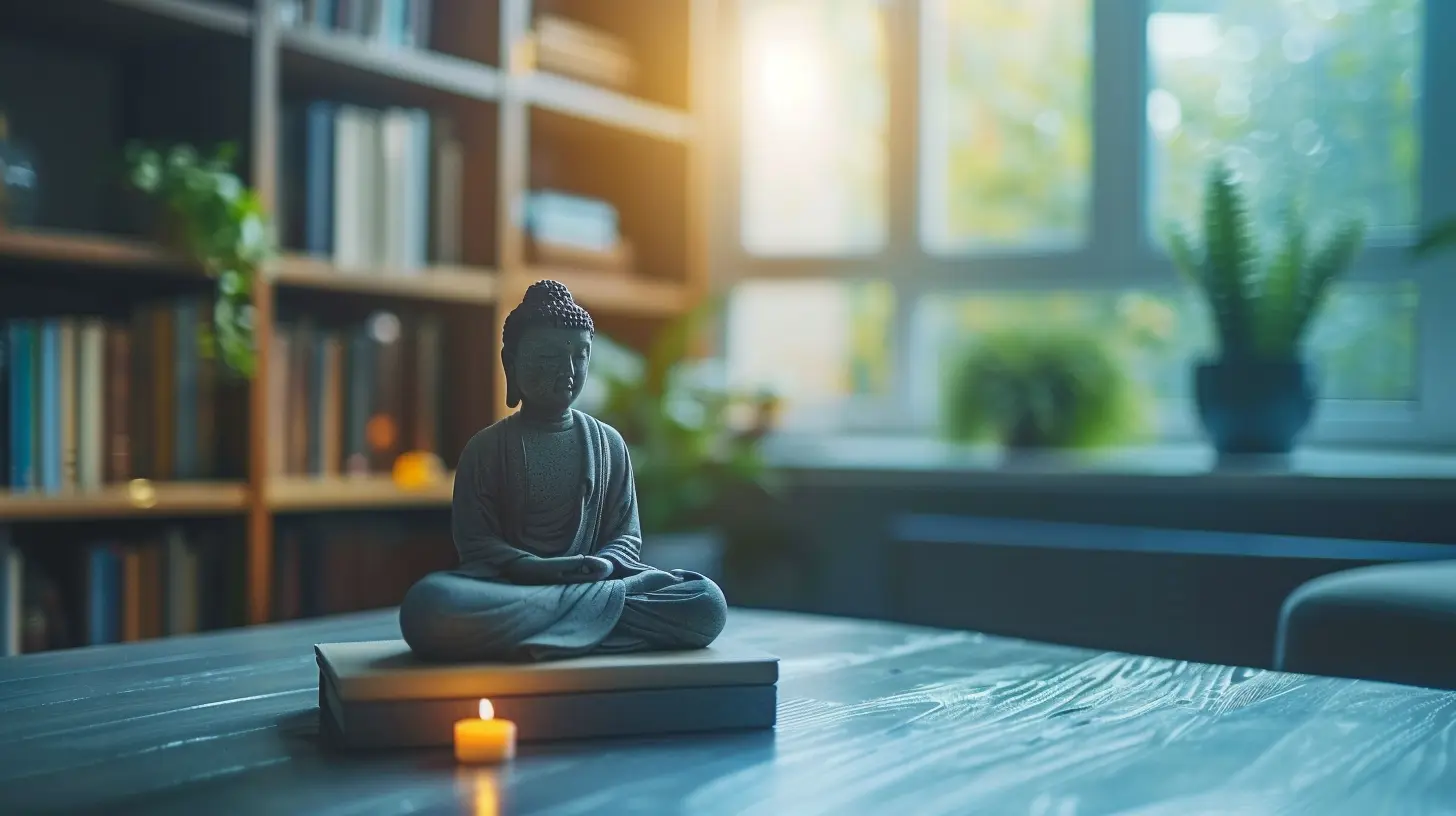How to Use Progressive Muscle Relaxation to Relieve Stress
10 June 2025
Let’s face it—life can get stressful. Work, relationships, finances, social pressures, health concerns... the list goes on. And while stress is a normal part of life, the constant pressure can take a huge toll on your body and mind if you don’t manage it properly. That’s where Progressive Muscle Relaxation (PMR) comes in.
In this guide, we’re going to dive deep into how to use Progressive Muscle Relaxation to relieve stress. We’ll talk about why it works, how to do it step by step, and how you can make it a regular part of your self-care routine. Don’t worry if you’ve never tried PMR before—I'll walk you through everything like we're sitting down for coffee.
What Is Progressive Muscle Relaxation (PMR)?
Progressive Muscle Relaxation, or PMR for short, is a relaxation technique that involves tensing and then relaxing different muscle groups in your body, one at a time. It’s simple, completely natural, and—get this—it actually works!It was developed in the 1930s by Dr. Edmund Jacobson, who believed that mental calmness is a natural result of physical relaxation. In other words, if your body is relaxed, your mind will likely follow. Makes sense, right?
Why PMR Helps Relieve Stress
You know how your shoulders get all bunched up when you're tense? Or maybe you clench your jaw without realizing it during a tough day? That’s your body holding on to stress—literally. PMR helps you become aware of that tension and actively release it. Kind of like popping the pressure valve on a boiling pot.Here’s how PMR helps:
- Reduces muscular tension: Physical tension and mental stress are tightly connected. Relax the body, and the mind often follows.
- Promotes mindfulness: PMR forces you to slow down and focus on your body, helping you become more grounded in the present moment.
- Improves sleep: It calms your nervous system before bed, making it easier to fall asleep and stay asleep.
- Eases anxiety: It’s commonly used in cognitive-behavioral therapy (CBT) to help people manage anxiety.
Who Should Try PMR?
Short answer? Just about anyone.Whether you're dealing with general stress, anxiety, insomnia, chronic pain, or even performance nerves before a big event, PMR can be a useful tool in your mental health toolbox. It’s not invasive, it’s medication-free, and you can do it literally anywhere—at work, in bed, or sitting in traffic (well, okay, not the full routine while driving, but you get the idea).
Before You Start: A Few Ground Rules
Before jumping into your first PMR session, let’s go over a few basics to set you up for success.1. Find a Quiet Space
Distractions are the enemy of relaxation. You’ll need a quiet, comfortable spot where you won’t be disturbed. That could be your bed, your couch, or even your office during a lunch break.2. Wear Comfortable Clothing
If you’re wearing something that’s too tight or restrictive, it’ll be harder to fully relax. Loose, breathable clothing is ideal.3. Sit or Lie Down
There’s no right or wrong here. Some people prefer lying down because it helps them completely let go. Others prefer sitting upright to stay more alert—especially if they're doing PMR during the day.4. Go Slow and Steady
This isn’t a race. Take your time with each muscle group. It’s about awareness, not speed.Step-by-Step Guide to Progressive Muscle Relaxation
Alright, let’s get into the nitty-gritty. Here’s how to use progressive muscle relaxation to relieve stress in a step-by-step way.Step 1: Take a Few Deep Breaths
Start by taking a few slow, deep breaths. In through the nose for a count of four, hold for a count of four, then slowly out through your mouth for a count of six. Do this for a minute or two to settle your body and mind.Step 2: Begin With Your Feet
Focus on your feet. Curl your toes and tense the muscles in your feet as tightly as you can. Hold for 5-10 seconds (just don’t hurt yourself), then slowly release all the tension.Notice how your feet feel now that they're relaxed. That contrast between tension and release is the magic sauce.
Step 3: Move Up the Body
Work your way up the body, repeating the same process: tense for about 5-10 seconds, then release and relax for about 15-20 seconds before moving on.Here’s a typical PMR sequence:
- Feet and toes
- Calves
- Thighs
- Hips and buttocks
- Stomach
- Chest
- Hands
- Forearms
- Upper arms
- Shoulders
- Neck
- Jaw
- Mouth (lips and tongue)
- Eyes and forehead
Some people prefer to group muscles (e.g., legs together, arms together), while others do one muscle group at a time. Try both and see what feels better for you.
Step 4: Focus on the Difference
After releasing each group, take a moment to notice how that part of your body feels now that it’s relaxed. This is key. It helps train your brain to recognize the feeling of relaxation, so over time, you'll be able to relax more quickly, even in stressful situations.Step 5: Finish With a Full-Body Scan
When you’ve worked your way through your entire body, take a minute or two to just be still. Notice the overall sensation of calm. Let yourself enjoy it.Tips to Get the Most Out of PMR
PMR is easy in theory, but like anything, it takes some practice. Here are a few tips to keep in mind:Be Consistent
Consistency is key. Try it daily, even if just for 10-15 minutes. The more regularly you practice, the better your brain gets at switching into “relax mode.”Use Audio Guides
Especially if you're new to the technique, guided PMR sessions (found on YouTube, Spotify, or meditation apps) can be super helpful. They direct you through the routine so you don’t have to remember what comes next.Don’t Worry If You Fall Asleep
Falling asleep during PMR is actually pretty common. It’s a sign that your body truly needed the rest. Just try it at a different time of day next time if staying awake is your goal.Stay Patient With Yourself
Not every session will feel like a deep spa day. Sometimes your mind will wander, or you'll feel fidgety. That’s OK—it’s part of the process. Just keep coming back to the practice.How PMR Fits Into a Bigger Stress-Relief Strategy
While PMR is powerful on its own, it works even better when paired with other healthy habits. Think of it like one tool in a well-stocked toolbox.Here are a few ways to amplify your stress relief:
- Combine it with deep breathing to calm your nervous system.
- Use it before meditation as a way to prep your body.
- Try it before bed to help you fall asleep faster.
- Pair it with journaling to process what might be emotionally weighing you down.
Common Mistakes and How to Avoid Them
Let’s clear up a few common hiccups people run into:- Tensing too hard: This isn’t a workout. Over-tensing can lead to soreness. Aim for firm, not forceful tension.
- Holding your breath: It’s easy to forget to breathe while you’re concentrating. Keep breathing normally, or even better—slow and deep.
- Rushing through it: The benefits come from fully experiencing each phase. Don’t just go through the motions.
When Should You Use PMR?
That’s the beauty of it—you can use PMR whenever stress creeps in. Here are a few great times to practice:- Before a stressful meeting or exam
- At night to wind down
- On your lunch break to reset
- During an anxiety episode
- After exercise for deeper recovery
Final Thoughts
Progressive Muscle Relaxation is like giving your body a well-deserved exhale. It’s easy, free, and surprisingly powerful. Whether you’re dealing with chronic stress or just need a reset button after a tough day, PMR can help you reconnect with yourself and bring a sense of calm back into your life.Stress might not fully go away (that's life), but your ability to deal with it can get a whole lot better. So next time you find your jaw clenched or your shoulders hunched up to your ears, give PMR a shot. You might be surprised at how good it feels to just let go—one muscle at a time.
all images in this post were generated using AI tools
Category:
Stress ReliefAuthor:

Gloria McVicar
Discussion
rate this article
2 comments
Miriam McKay
Progressive Muscle Relaxation (PMR) is a powerful technique that helps reduce stress by systematically tensing and relaxing muscle groups. This method not only promotes physical relaxation but also enhances awareness of bodily tension, making it easier to manage anxiety. Incorporating PMR into daily routines can significantly improve overall well-being.
June 23, 2025 at 3:21 AM

Gloria McVicar
Thank you for highlighting the benefits of Progressive Muscle Relaxation! It's a valuable practice that can greatly enhance stress management and overall well-being.
Elias McMahon
Progressive Muscle Relaxation is an invaluable tool for stress relief. Implementing this technique can transform your mental well-being and enhance your overall resilience. Start today!
June 15, 2025 at 4:21 AM

Gloria McVicar
Thank you for your insightful comment! I completely agree—Progressive Muscle Relaxation is a powerful method for enhancing mental well-being and resilience. I hope readers find it as transformative as you describe!


